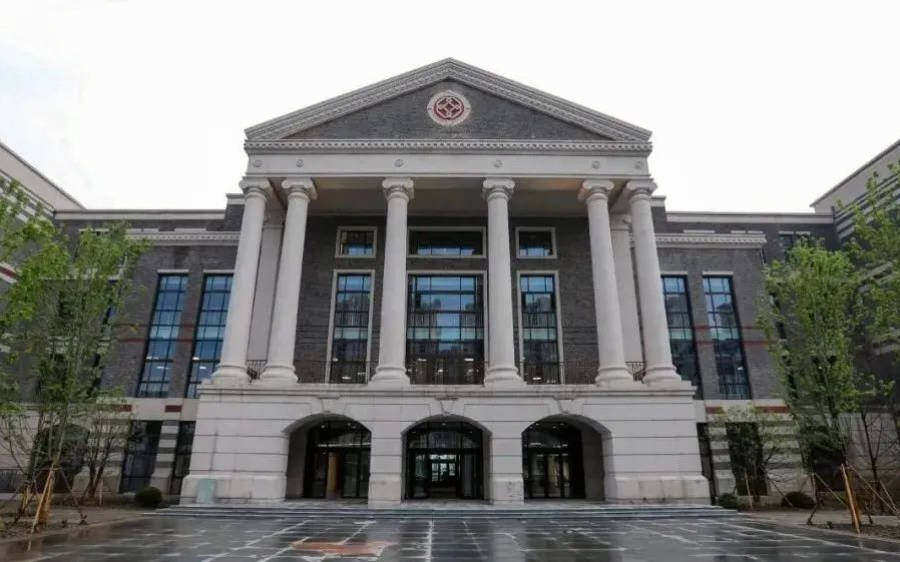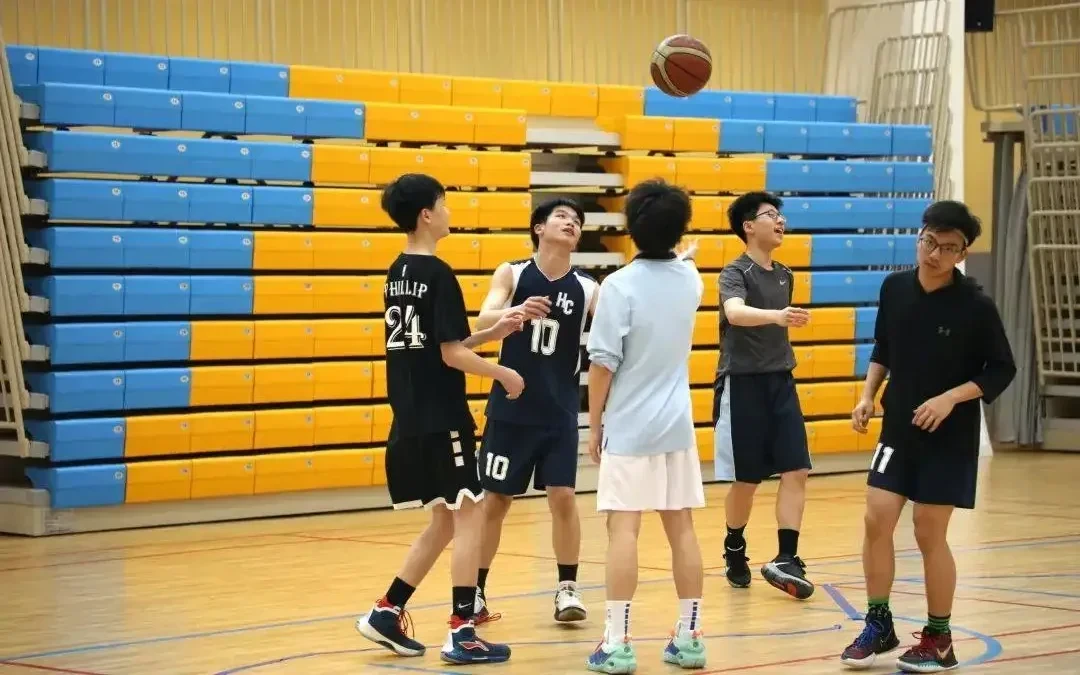Dr. Jeffrey Walkington arrived in China in September 2021, to take up the post of Upper School Principal of Dipont Huayao Collegiate School Kunshan.
He reflects on the process of coming to China, his life in Kunshan, the differences between US and Chinese students, and his experience working with a bilingual education team.

What influenced your decision to come to China?
First of all, seeing the school on the website really impressed me. The buildings here are phenomenal, as are the facilities.
I was impressed that the school wasn’t just academically oriented, but that it was also a place for character building, and social, emotional, and experiential learning. They put a big premium on these approaches to learning here at the school and I was interested in that.
Finally, I read about the leadership and was interested in working with Carol Santos, Founding Head, who has been in some really fine independent schools in the US and has a fine background, so I liked that. All put together, the opportunity was too good to miss.
How was your pre-arrival experience?
The paperwork is pretty overwhelming. But I think the Dipont people and the HR people at the school here do a wonderful job of holding your hand through the whole process.
I’m especially grateful to Rebecca Lu, who works in HR here at Dipont Huayao. Not only did she help me through the whole paperwork process, and the whole flight process, but also when I was in quarantine she ordered me food and got me things that I needed. She even set up my apartment for me. She found my apartment. I gave her a big list of everything I needed to set up and she bought all those things, and she got them to the apartment. When I got there my bed was made. It was pretty phenomenal. She took care of me from beginning to end, and I think that’s the kind of concern that a lot of the Dipont people show towards new employees.

Did you experience any culture shock when you arrived here?
The only day that’s been hard the whole time here was the first day I got here. You know, you fly into this gigantic airport with a completely empty airport terminal, and there are hundreds of people in hazmat suits spraying you down with chemicals, and they’re testing you, and they’re yelling at you to produce some phone app and all this kind of stuff. It was a little intimidating.
I was lucky to meet a Chinese graduate student, who was in my group, who helped me through the whole process. That was my first experience of how friendly and helpful the people can be here.
That night they put me in one of those quarantine hotels. I didn’t know where the heck I was going. In the middle of the night, they kind of dumped me at a hotel, and they gave me some forms that were all in Chinese, and they gave me two packs of noodles and sent me to my room and locked me in. And I was like, ‘Is this what the whole year is going to be like?’
By the next day, I was fine. I really enjoyed the quarantine hotel. I know that sounds strange, but I had my computer. I could work online, so I just put in an eight-hour day every day, then I relaxed and read and did some other things at night. I thought the food was fine. Since then I know there is much, much better food in China, but it was fine at the time.
When I got out of the hotel I moved into the apartment that the school had set up for me, and that was nice, and so I enjoyed that for two weeks. I was ready to get out of quarantine by the time that was over, but I was fine the whole time.
As far as culture shock, it’s all been pleasant. I thought that China was a much more closed and backward place, much more suspicious of foreigners. Instead, I found a place with beautiful areas, beautiful cars, friendly people and advanced technology, more advanced than the US in lots of ways.
What differences have you noticed between students in the US and students in China?
I’ve been struck by how similar they are. I interviewed students for admissions here just yesterday, and they like basketball, they like hip hop music, they like video games. They like some of the very same things as US kids. I find that the kids here are pretty much like good kids in the States. So, our kids are friendly, they are smart, they like to please their teachers. I don’t think there are huge differences.

I hate to say this, but I was kind of expecting robot students who do everything they’re told, and don’t question things, and don’t participate in class, and just like memorization and those kinds of things. While that might be typical of public school students, it’s not like that in our independent school.
They are much more energetic free thinkers, I have found.
What has been your experience of managing a bilingual team?
I’ve found it very interesting since I didn’t know any Chinese people. For the most part, I’ve found that they are just hard-working professionals who know an awful lot about education. I think they must have really good teacher training over here, as most of them are really well versed in teaching techniques and their content areas are strong.
We are fortunate that the expat half and the Chinese half of the faculty get along really well. We try to have everybody speak up and participate in decision-making. I don’t find it that much different from managing in the US, except here you’ve got a lot of really highly qualified, highly educated people to work with.
What advice would you give to someone who is thinking about moving to Kunshan?
Be adventurous, and take advantage of the opportunity. This has been a real eye-opening and life-altering experience for me in a positive way. I never really imagined myself being in China, but I think it’s nothing to fear, people should embrace the opportunity and I think they’ll be happy that they did.
Kunshan is a very nice place to live. It’s very affordable. People can make money that they can send home, and do well financially. The people are friendly and life is good here. I am glad I made the move.


